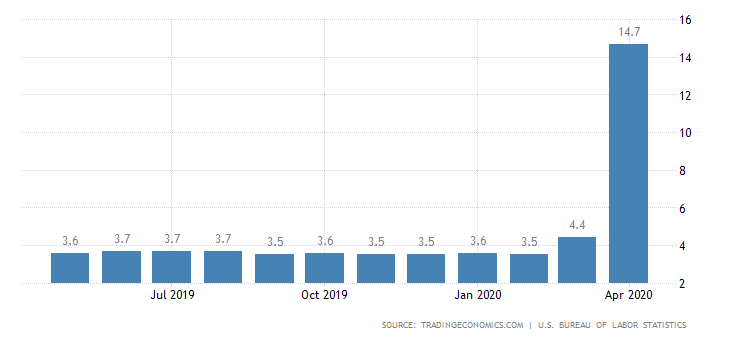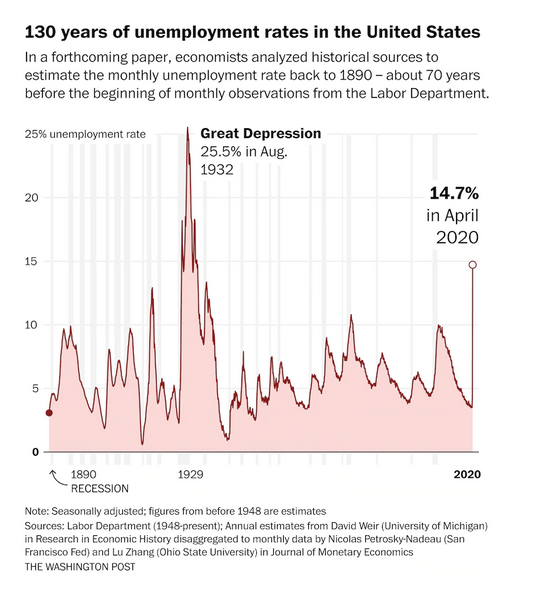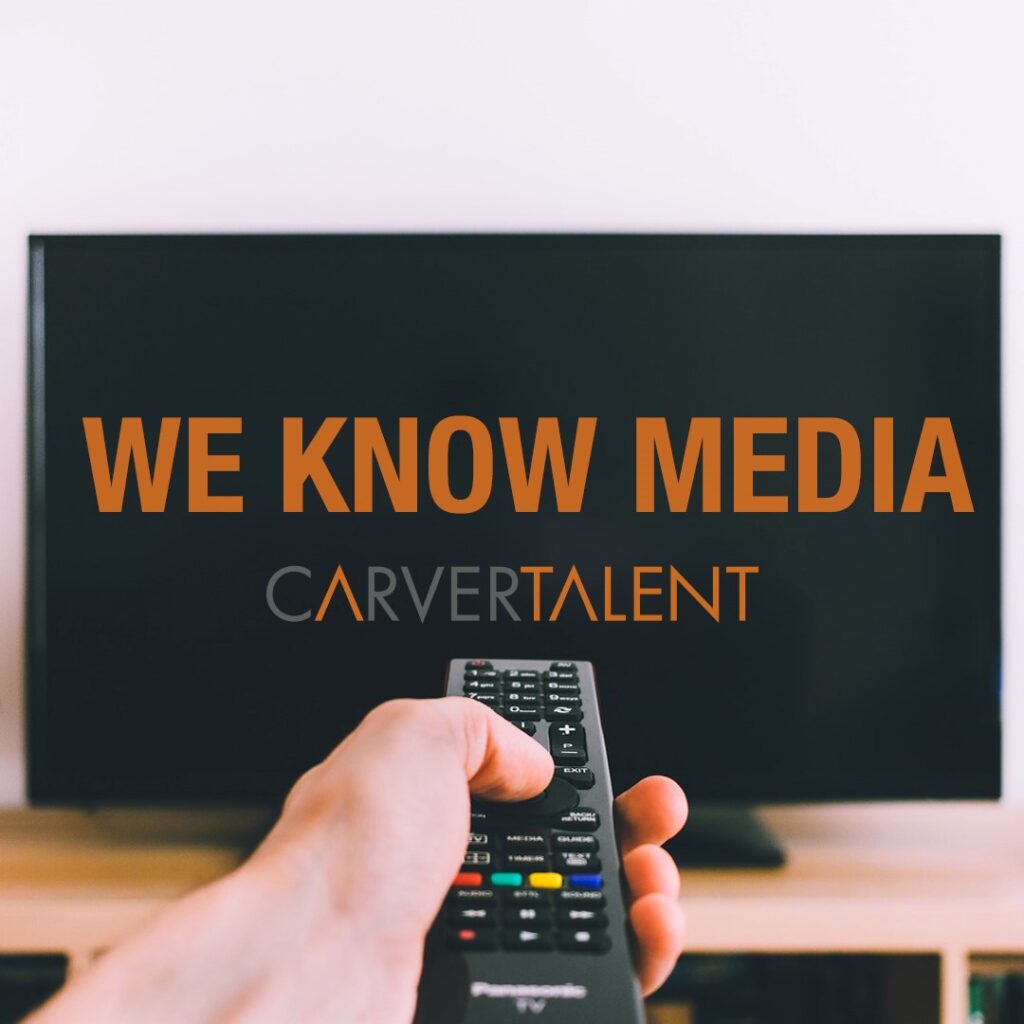The staggering U.S. unemployment rate announced by the government this past Friday as a result of the global pandemic may get even worse, according to Treasury Secretary Steven Mnuchin. “The reported numbers are probably going to get worse before they get better,” Munchin told the Fox News Sunday program. The unemployment rate exploded to 14.7% in April, as reported by the Department of Labor. This number shattered the post great depression record of 10.8% from late 1982. If you add the U.S. unemployment claims, the actual unemployment rate is well over 20% counting 26 million jobs lost. Analysts warn it could take years to return to the 3.5% unemployment rate the nation recorded in February, in part because it is unclear what the post-pandemic economy will look like…even if scientists make progress on a vaccine.


Many of the jobs lost were from the hospitality, retail, and restaurant industries. However, white collar jobs are now being affected as well with companies shedding over 2 million positions and state/local governments losing nearly a million.
What does this mean for the media industry? Given the economic uncertainty and the lack of live sports, this does not add up to a rosy outlook for the second quarter and beyond. Media groups’ bottom lines are forecast to take a significant hit when the full effect of the coronavirus crisis will be felt on their earnings. The ongoing pandemic has had a major negative impact on ad sales at nearly every major media company. Is the worst yet to come? Even the media groups who reported strong quarters recently which were buoyed from advertising dollar bonanzas earlier in the year are warning of an even uglier ad market moving forward.
Ironically, networks are experiencing rapid ratings rise given the self-quarantined captive audience. Yet, they are unable to fully monetize this advantage as advertising dollars from tourism, retail, automotive sales, film studios, travel, and sports monies dry up.
It is estimated 20% to 25% of the TV marketing budgets have been cancelled for the second quarter with another 20% to 25% having been shifted to later in the year or into 2021. This will lead to somewhere between $2-$3 billion in lost revenue, according to some media-buying execs.
How does this affect recruiting within the media industry? There have been furloughs. However, many media groups are trying their best to avoid aggressive downsizing. One large broadcast media group is even going so far as to providing loans to their sales Account Executives to hold them over during this rough patch…But, will require repayment. And yes, some groups/stations are downsizing due to the downturn in ad revenue. Some media groups have instituted a hiring freeze. While others are filling only “critical” openings.
If you are a hiring manager, why consider utilizing a recruiting/staffing firm to assist in filling job openings? The short answer? Firepower. Just as it was during nearly record low unemployment numbers, recruiting firms are still interviewing a high number of candidates and can provide top talent for select openings. It is their primary responsibility, and they are experts with high volume metrics targets to hit. With hiring managers now tasked with managing a mostly remote workforce and perhaps doing so with less staff, many simply do not have the time to effectively handle recruiting responsibilities as well.

High unemployment numbers do not always equate to a bonanza of highly qualified candidates. Yes, there may be a much larger response from candidates applying to job openings given the number of people looking. However, many may not be qualified. And, sifting through a large candidate pool within an applicant tracking system takes time. Given the influx of unemployed professionals hitting the job market, not all were top performers in their last position. And lastly, many of the top performers are simply “hunkering down” during this global pandemic and not actively looking for new opportunities. A skilled recruiter/headhunter will have numerous connections and knows where the top talent is and what they are looking for.

Yes, a recruiting firm will charge a fee…typically a percentage against the candidate’s first year base compensation. And yes, this is not always inexpensive. However, the time saved to fill the position and the chance to land a top prospect may well compensate for this cost. Typically, a client will not have to pay a fee unless a candidate submitted by the recruiting firm is hired. This gives a hiring manager a unique opportunity to compare their candidate pool against those submitted by the recruiting firm.
Ty Carver has nearly thirty years of recruiting, HR management, sales, and leadership experience…including the last eight specific to the broadcast media industry.


